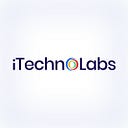Difference between Django vs Flask Frameworks in Python Development
Python programming language has a number of web frameworks that web developers may utilize to create websites. This enables the web developer to select the framework that perfectly matches their purpose and is appropriate for the venture. Among many popular options, Django and Flask are the two most frequently compared in terms of popularity. This is most likely due to the fact that they both have some similarities and many differences. Each framework has its own distinct features, allowing us to tailor it to the needs of a certain project. As a result, choosing the best among the two is quite a challenging task: Not anymore. Here we bought a streamlined difference between Django and Flask in python development. Without further ado, get ahead to explore the difference in detail!
Get Started for Django Vs Flask Frameworks Difference Ahead
- Django: Batteries Integrated Framework
Django is frequently referred to as a “batteries included” system approach or the “framework for fussbudgets with deadlines.” Both of these descriptions accurately describe Django. This suggests that Django makes it easier for Python designers to get into web apps swiftly without requiring any prior preparation into the app’s framework. This is made possible by Django’s ability to eliminate the need for framework planning. Construct higher-quality web applications in a shorter amount of time and with fewer lines of code. Django is ready to use, possesses extensive documentation, and is supported by a sizable online community.
- Flask: Next-Gen Pythonic Framework
Flask is another Python-based micro-framework for web application development. Armin Ronacher presented it in 2011 as an experimental technique of combining two technologies, Werkzeug (a server framework) and Jinja2 (a template library). It is a micro-framework that provides basic web app functionalities. This framework does not rely on any external libraries. Form validation, object-relational mappers, open authentication systems, an uploading mechanism, and other extensions are available in the framework. Many developers choose to start using Flask since it is more autonomous and adaptable. It has its own tools, technologies, and libraries to help in web application development.
Django Vs Flask Frameworks: Features Comparison
Key Features of Django
Django’s primary features include the following:
- It is really fast. Django’s working method from concept to finish is exceptionally rapid without any consideration.
- Django is a flexible framework that allows developers to operate on a variety of platforms, including content management systems like WordPress, social networking sites like LinkedIn and YouTube, and news sites like The New York Times and CNN.
- Django is flexible to a variety of formats, including JSON, HTML, XML, and others.
- Scalability: It is a framework that enables scalability (a system that allows for modifications and updates on various levels without much expense and effort, i.e., each layer is independent) and maintenance (the design and code are not susceptible to duplications and, hence, the code can be reused and maintained properly)
- Django ensures security with sophisticated authentication mechanisms and procedures to prevent clickjacking, illegal access, cyber attacks, and other threats.
- Django is portable since it is a Python-based framework.
Key Features of Flask
Flask has the following features:
- It is a lightweight framework since it does not rely on other libraries. It expedites the web development process for complicated applications.
- Flask provides the developer with autonomous or full autonomy over the creation of apps. You may play around with the framework’s architecture and libraries.
- Flask’s integrated unit testing approach allows for faster debugging, more robust development, and more flexibility to explore.
- Secure Cookies: A secure cookie is an HTTP request property that provides channel security and assures no unauthorized person has access to the text. Flask supports the secure cookie functionality.
- Flask is compatible with cutting-edge technology such as machine learning and cloud computing.
- Support for WSGI templates, which provide web application flexibility and scalability.
- It has a built-in server and debugger.
- Configurations that are simple and flexible
